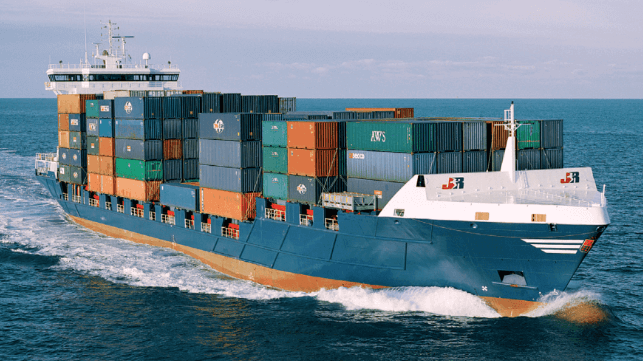Two Feeder Ships to Install Carbon Capture Combined into Scrubbers

One of the new technologies being explored seeks to introduce a carbon capture capability aboard ships which would be especially important for in-service vessels to meet future environmental regulations. Dutch maritime technology company, Value Maritime, reported in 2021 that it had developed a system that combined the company’s exhaust filtration systems with carbon capture. The company is moving forward with the installation of its system announcing this month that it had contracts to install the filer and capture system on two feeder containerships.
JR Shipping based in the Netherlands has contracted with Value Maritime for the installation of the systems aboard two of its 9,500 dwt vessels. The vessels, Endeavor and Energy, each are 442 feet long with a capacity of 750 TEU. The Energy was built in 2004 and Endeavor in 2005 with flexible cargo capacities including a large capacity for reefer containers. Both vessels are powered by MaK diesel engines. The Endeavor, built by the Deawoo Mangalia Heavy Industries yard in Romania, is scheduled to be retrofitted with the exhaust technology in April 2022 and the system will be installed on the Energy in the summer of 2022.
Value Maritime says the system, which is suitable for both existing and new vessels, is based on a versatile technology that filters sulfur and ultra-fine particles from exhaust gas and purifies wash water. In addition, a patented CO2 capture and storage module is integrated into the system. The CO2 is stored in battery containers for reuse in other industries, with the carbon even being re-used to facilitate the growth of flowers and other crops. Value Maritime has set up an extensive service network to replace the batteries in main ports.
The advantage of the system is full compliance with sulfur emission regulations while still operating on cost-efficient fuel. Because the vessels will be able to continue to operate on basic fuel instead of the more expensive premium fuel, the shipowner believes it will have a significant competitive advantage.
Testing of carbon capture technologies has been proceeding with several trials. Last year a Japanese group led by Mitsubishi Shipbuilding and K Lines tested a carbon capture system installed on one of K Line’s bulkers. Wartsila also reported success with its initial tests while planning to begin a vessel test this summer and full tests of carbon capture aboard an in-service vessel in 2023.
